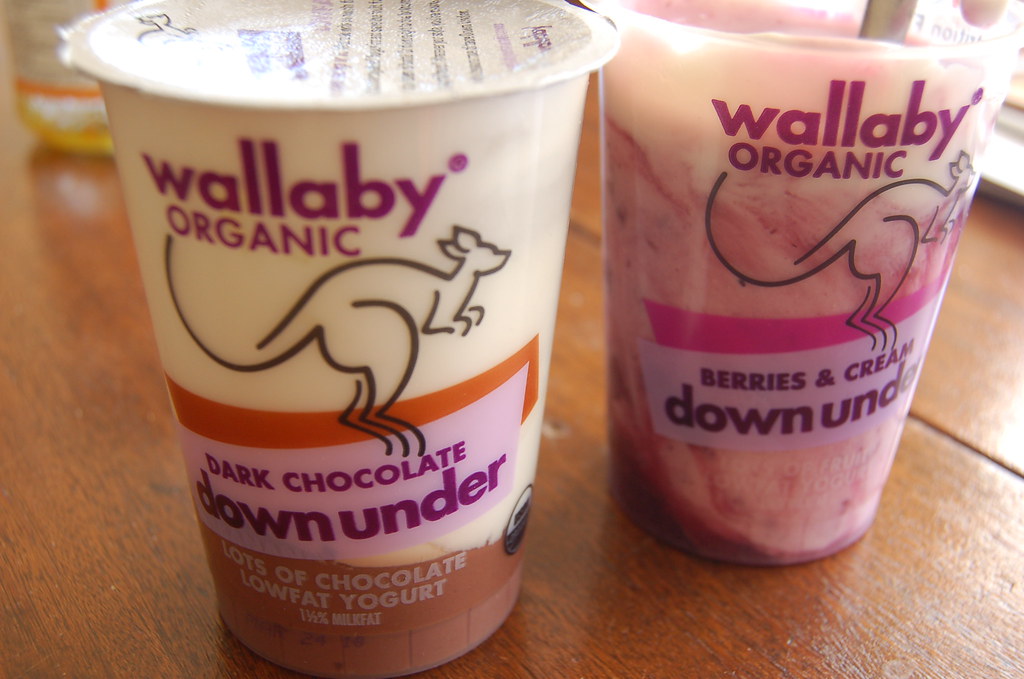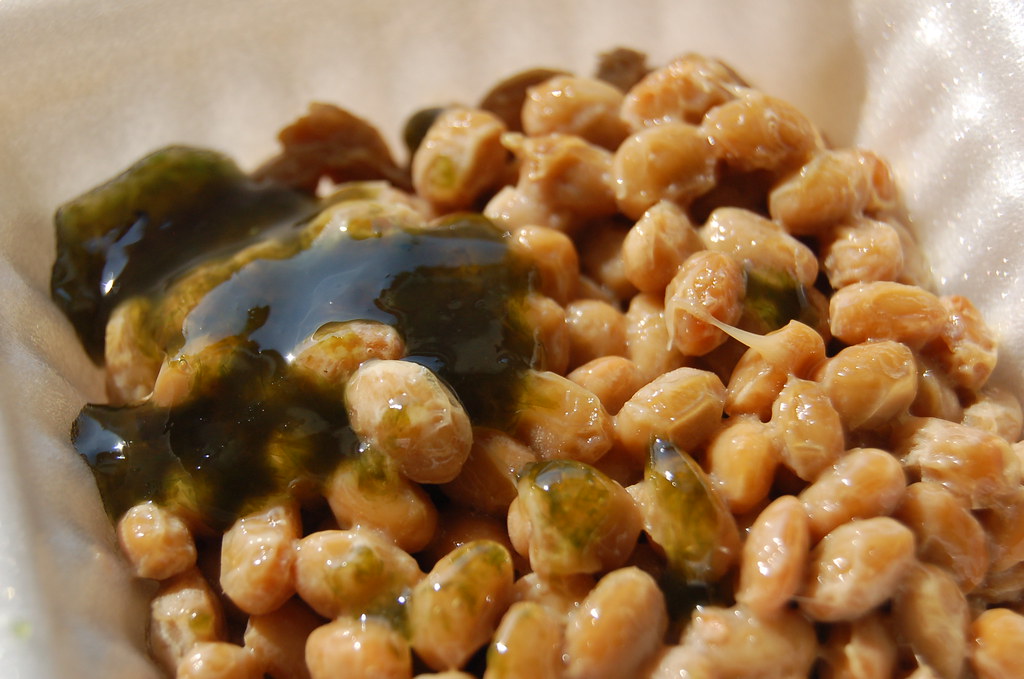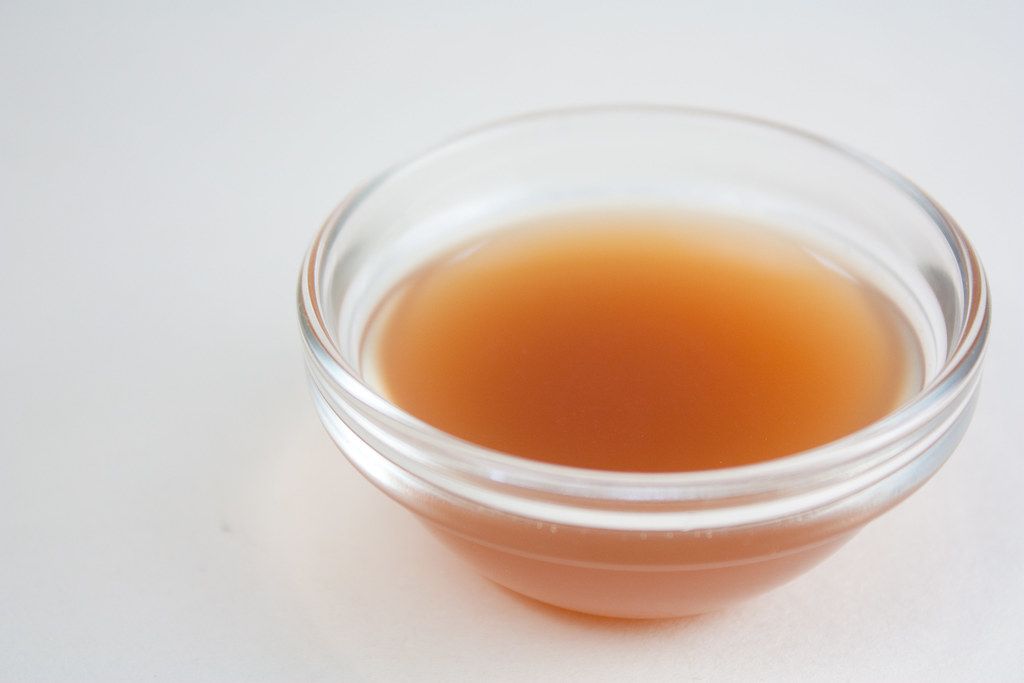
Did you know that some of the world’s most cherished foods and beverages owe their existence to a fascinating process called fermentation? It’s true! From the comforting tang of yogurt to the rich depth of coffee and chocolate, fermentation has quietly shaped our culinary landscape for millennia. Our ancestors wisely harnessed this natural method to not only enhance flavors but also to prolong the freshness of vital grains, vegetables, and milk across changing seasons. Today, we’re rediscovering these ancient traditions for their remarkable ability to support our overall well-being.
At its heart, fermentation is a beautiful dance between food, bacteria, yeast, and microbes. It’s a chemical breakdown where sugars and carbs transform, altering the food’s structure and often making its nutrients more bioavailable, or easier for your body to absorb. Think of it as nature’s way of boosting nutrition and adding incredible complexity to flavors. More importantly, consuming these ‘cultured’ foods is one of the most convenient and delightful ways to introduce a daily dose of beneficial probiotic bacteria into your system, laying a strong foundation for gut health and so much more.
Indeed, the science is increasingly clear: fermented foods are superstars for holistic health. Studies point to their roles in improving digestion and cognitive function, boosting immunity, and even helping to treat conditions like irritable bowel disease. They also provide essential minerals for bone density, assist in fighting allergies, and combat harmful yeast and microbes. Get ready to embark on a delicious journey as we explore 14 simple ways to incorporate these amazing fermented foods into your diet and unlock their full potential for a healthier, happier you.

1. **Yogurt**Yogurt stands as one of the most widely consumed fermented dairy products across the globe, and for good reason. Essentially, it’s fermented milk, created when a starter culture works its magic on lactose (milk sugar), transforming it into lactic acid. This process not only gives yogurt its distinctive tangy flavor but also causes the milk to clot, thicken, and achieve that wonderfully smooth texture we all love. It’s a staple for many, and its availability makes it an accessible entry point into the world of fermented foods.
Beyond its taste and texture, yogurt is a nutritional powerhouse. It’s rich in calcium, protein, and essential vitamins like B12, all while being easier to digest for many individuals who are lactose intolerant, thanks to the fermentation process that breaks down lactose. The presence of characteristic bacterial cultures, specifically *Lactobacillus bulgaricus* and *Streptococcus thermophilus*, are key to its probiotic benefits, actively working to support a healthy gut microbiome.
When you’re choosing yogurt, a few key considerations can help you maximize its health benefits. Opting for organic varieties is always a good starting point. If you find cow’s milk challenging to digest, consider yogurts made from goat or sheep milk, which can be gentler on your system. Furthermore, selecting products from grass-fed animals ensures a higher quality dairy base. These simple choices empower you to enjoy one of the top probiotic foods with confidence, knowing you’re nourishing your body with high-quality, gut-friendly goodness. Its intake has even been associated with better overall diet quality, healthier metabolic profiles, and improved blood pressure.
Read more about: Mastering the Art of No-Bake Desserts: 11 Foolproof Strategies to Achieve Perfect Setting Without Gelatin

2. **Kefir**Imagine a drinkable yogurt, but with an even broader spectrum of beneficial bacteria and yeast, and you have kefir! This fermented milk product, often made from cow, goat, or sheep’s milk, has been cherished for over 3,000 years, with its name originating from Russian and Turkish, meaning “feeling good.” It’s created using continuous use of kefir grains at room temperature, which are not actual grains but symbiotic cultures of bacteria and yeast.
Kefir is a true champion of gut health, providing high levels of vitamin B12, calcium, magnesium, vitamin K2, biotin, folate, enzymes, and a vast array of probiotics. What sets it apart from yogurt is its wider range of bacteria and the inclusion of yeasts, making it typically more tart and sour. Its unique composition has garnered significant attention for its health-promoting properties.
Remarkable studies highlight kefir’s efficacy in addressing specific digestive concerns. It’s been shown to help with lactose malabsorption, making dairy more accessible for some individuals. Even more impressively, research indicates a significant impact on *H. pylori* infections, with an eradication rate of 78% for those consuming kefir, far surpassing the 50% rate without it. For those seeking a dairy-free option, water kefir offers a similar probiotic boost, ensuring everyone can enjoy the benefits of this ancient, “feel-good” beverage.
Read more about: Mastering Midlife: 12 Key Foods for Men’s Strength and Unwavering Vitality After 40

3. **Raw Cheese**When we talk about cheese in the context of gut health, we’re not referring to just any cheese; we’re focusing on raw milk cheeses, particularly those that have been aged. These exquisite varieties are crafted from milk that hasn’t undergone pasteurization, preserving the natural enzymes and beneficial bacteria that are often eliminated by heat treatment. Goat milk, sheep milk, and A2 cow’s soft cheeses are notably high in probiotics, boasting strains like *thermophillus*, *bifidus*, *bulgaricus*, and *acidophilus*.
The fermentation process involved in making raw, aged cheese not only contributes to its complex, delicious flavors but also introduces live cultures that support your digestive system. These natural probiotics aid in balancing your gut microbiota, making cheese more than just a culinary delight; it becomes a contributor to your overall gut health. It also provides essential nutrients such as calcium, protein, and vital B12 vitamins, making it a wholesome addition to a balanced diet.
To ensure you’re getting the true probiotic benefits, it’s crucial to read ingredient labels carefully. Look for cheeses that explicitly state they are “raw” and have been “aged for six months or more.” This indicates that the cheese has had sufficient time for beneficial bacteria to proliferate and for the lactose content to be naturally reduced. Incorporating these real, fermented cheeses into your diet is a wonderful way to enjoy rich flavors while nourishing your gut.
Read more about: 14 Major Cooking Oils That Flat-Out Refused to Reach a High Smoke Point Safely: A Deep Dive for the Discerning Cook

4. **Sauerkraut**Sauerkraut, meaning “sour cabbage” in German, is a true ancient marvel, with a history spanning over 2,000 years, believed to have originated in Chinese cuisine before gaining popularity in German and Russian traditions. This simple yet incredibly powerful food is made from fermented green or red cabbage and is a fantastic source of probiotics, particularly *Lactobacillus spp.*, which are vital for a healthy gut.
The process of making sauerkraut involves lactic acid fermentation, where the natural sugars in the cabbage are converted into lactic acid by beneficial bacteria. This not only preserves the cabbage for extended periods but also enhances its nutritional profile. Sauerkraut is remarkably high in fiber, vitamins A, C, K, and B vitamins, along with a wealth of minerals like iron, copper, calcium, sodium, manganese, and magnesium, making it a nutrient-dense addition to any meal.
However, it’s important to differentiate between traditional, fermented sauerkraut and its store-bought, often canned or processed counterparts. True fermented sauerkraut, brimming with live and active cultures, needs to be refrigerated and will typically be stored in glass jars, with its fermentation clearly stated on the label. This authentic version is where the gut-boosting magic truly lies, offering potential relief for conditions like irritable bowel syndrome (IBS) by promoting a balanced gut environment. It’s an easy, tangy way to boost your daily probiotic intake.
Read more about: Taste of Tenacity: 14 Cuisines Refusing to Yield Their Soul to Modern Global Techniques

5. **Kimchi**From the heart of Korean cuisine comes kimchi, a vibrant and spicy traditional dish made from fermented vegetables, most commonly napa cabbage, radishes, red pepper, garlic, and ginger, along with an array of other seasonings. This Korean delicacy, dating back to the seventh century, is not just a flavorful side dish; it’s a fermented superfood renowned for its profound health benefits and its distinct tangy, spicy kick, which comes from lactic acid bacteria such as *Lactobacillus plantarum*, *Weissella koreensis*, and *Leuconostoc gasicomitatum*.
Kimchi is a nutritional powerhouse, celebrated for its ability to improve cardiovascular and digestive health. It boasts high levels of antioxidants that may play a role in reducing the risk of serious health conditions, including certain types of cancer, diabetes, obesity, and gastric ulcers. A report published in *Bioactive Foods in Health Promotion* explicitly states: “Health functionality of kimchi, based upon our research and that of others, includes anticancer, antioxidative, antiobesity, anti-constipation, serum cholesterol and lipid-controlling, antidiabetic, and immune-boosting effects.”
While the health functionality of kimchi is widely recognized and incredibly impressive, it is important to be mindful of consumption quantities. A study noted that consuming large amounts may potentially increase gastric cancer risk. However, when enjoyed as part of a balanced diet, kimchi safely contributes a wealth of probiotic organisms to your human microbiota, making it a delicious and potent ally in your quest for optimal gut health. It’s a wonderful way to add diversity and spice to your fermented food repertoire.
Read more about: Taste of Tenacity: 14 Cuisines Refusing to Yield Their Soul to Modern Global Techniques

6. **Pickles**When you think of pickles, you might just picture a sour snack, but traditional, fermented pickles are so much more than that! Made from cucumbers and brine (a simple solution of salt and water), these savory delights undergo a natural lactic acid fermentation process. This is distinctly different from most store-bought pickles, which are often made with vinegar and cucumbers to achieve a sour taste without the benefit of live cultures. Real fermented pickles are teeming with gut-friendly probiotic bacteria, along with a wealth of vitamins, minerals, and antioxidants.
The benefits of fermented pickles extend beyond their probiotic content. They contribute significantly to your gut health by introducing beneficial bacteria and supporting healthy digestion. Furthermore, they can help boost your immune response, providing a natural defense for your body. Interestingly, pickles can even address the common issue of vitamin K deficiency, as just one small pickle contains a healthy dose of this fat-soluble vitamin, crucial for bone and heart health.
To ensure you’re getting the best probiotic bang for your buck, be discerning when choosing your pickles. Look specifically for “lactic acid fermented pickles” from manufacturers that use organic products and brine, refrigerate their pickles, and clearly state that the pickles have been fermented. Even better, seek out local makers at farmers’ markets; they often offer some of the freshest and most potent probiotics. Adding these crunchy, tangy treats to your meals is a simple and enjoyable way to enhance your daily probiotic intake.
Read more about: Lost in the Legal Labyrinth: 11 States Where Bizarre Historical Laws Still Spark Head-Scratching in 2025

7. **Sourdough Bread**For bread lovers, sourdough offers a uniquely delicious and surprisingly gut-friendly option compared to conventional breads. Its distinct tangy flavor and chewy texture are the result of a magical process involving a starter culture—a living mixture of flour and water that naturally ferments with the help of lactic acid bacteria and wild yeast. This traditional method of bread making has been cherished for centuries, creating a loaf that’s not only flavorful but also offers specific digestive advantages.
One of the most remarkable benefits of sourdough fermentation is its ability to break down components in the flour that can be challenging for some people to digest. Specifically, the prolonged fermentation process reduces the gluten content, making it easier on the digestive system for individuals who may have sensitivities. Moreover, sourdough bread can significantly reduce fructans, a type of FODMAP (Fermentable Oligo-, Di-, Mono-saccharides And Polyols) that often triggers symptoms in people with Irritable Bowel Syndrome (IBS).
While traditionally made sourdough bread doesn’t contain live probiotics in the final baked product (the heat of baking kills them), the fermentation process itself profoundly benefits the grains. It makes nutrients more available for absorption and reduces anti-nutrient content. Studies have even shown that 8-hour fermented sourdough can increase *bifidobacteria* in vitro. The organic acids produced during fermentation also act as natural preservatives, extending the bread’s shelf life without chemical additives. So, when prepared correctly, sourdough fits beautifully into a low-FODMAP or gluten-free diet, allowing you to enjoy delicious bread with improved digestibility.” , “_words_section1”: “1940
Continuing our exploration into the wonderful world of fermented foods, we now turn our attention to seven more incredible options that can further enrich your diet and supercharge your gut health. From unique beverages to savory soy-based delights, these foods offer diverse benefits and exciting flavors, ensuring there’s something new and beneficial for everyone to discover on their wellness journey. Each addition brings its own unique blend of probiotics, vitamins, and minerals, making it easier than ever to nourish your body from the inside out.
Read more about: 14 Proven Side Hustles That Can Earn You $500 Weekly in Under 10 Hours

8. **Kombucha**If you’re looking for a refreshing, effervescent drink with a rich history and impressive health benefits, kombucha is an excellent choice. This fermented beverage, often made from black tea and sugar, originates from China, with its roots tracing back to approximately 220 BC. The magic happens when a symbiotic colony of bacteria and yeast (often called a SCOBY) interacts with the sugar, initiating a fermentation process that transforms the tea into a tangy, slightly fizzy drink.
During fermentation, kombucha develops a fascinating profile of compounds, including acetic, gluconic, and lactic acids, along with B vitamins, enzymes, and a host of probiotics. While it has trace amounts of alcohol due to the fermentation, it’s typically too low to cause intoxication. This unique composition makes kombucha a popular choice for those seeking to support their gut health, as the beneficial bacteria and yeasts contribute to a diverse and thriving human microbiota.
For those curious about incorporating kombucha into their diet, it’s readily available in most health food stores and supermarkets. You can enjoy it on its own as a delightful alternative to sugary sodas, or even combine it with some seltzer for a lighter taste. While many enthusiasts laud its benefits for general gut well-being, it’s worth noting that research on its direct effects on specific gut disorders, such as ulcerative colitis or eczema, is still ongoing. Regardless, its refreshing taste and probiotic content make it a truly unique and enjoyable fermented beverage.
Read more about: Your Daily Sip: 14 Expert-Backed Drinks to Naturally Lower Blood Sugar and Boost Your Metabolic Health

9. **Miso**For approximately 2,500 years, miso has been a cherished staple in Chinese and Japanese diets, recognized not just for its deep, umami flavor but also for its profound health properties. This traditional Japanese ingredient is a fermented paste created from soybeans, often combined with barley or brown rice and a special type of fungus called koji (*Aspergillus oryzae*). The fermentation with koji is what gives miso its distinctive flavor profile and potent health benefits.
Miso is far more than just a seasoning; it’s a nutritional powerhouse. Studies suggest that incorporating miso into your diet may contribute to anti-aging properties, promoting healthy skin. It’s also known to boost the immune system and could potentially help lower the risk of certain types of cancer. Furthermore, miso is believed to improve bone health and support a healthy nervous system, making it a holistic addition to your meals.
The versatility of miso makes it incredibly easy to integrate into your daily cooking. It’s most famously used to create the comforting miso soup, often enjoyed with mushrooms for added depth. Beyond soup, it can be an excellent base for marinades, dressings, and glazes, adding a rich, savory dimension to your dishes. While no randomized controlled trials (RCTs) directly link miso to treating gastrointestinal problems, its probiotic content certainly contributes to a balanced gut, ensuring you’re adding vital nutrients with every delicious spoonful.
Read more about: Beyond the Red Carpet: 12 Celebrities Who Mastered the Restaurant Game (And Where to Eat Their Food!)

10. **Tempeh**Hailing from Indonesia, tempeh is another exceptional fermented food crafted from soybeans, offering a different texture and nutritional profile compared to other soy-based options. It’s made by combining soybeans with a tempeh starter, which is a mix of live mold, typically *Rhizopus oligoporus*. Over a day or two, this mixture ferments, resulting in a dense, cake-like block that is rich in both probiotics and a substantial amount of protein.
Tempeh stands out as a nutritious plant-based protein source, similar to tofu but with a firmer, more “grainy” texture and a distinct earthy flavor. It’s packed with essential B vitamins, specifically high levels of B2, B3, B5, and B6. Regular consumption of tempeh may offer several health advantages, including helping to reduce cholesterol, increasing bone density, alleviating menopausal symptoms, and promoting muscle recovery due to its impressive protein content, which is comparable to that of meat.
One of the significant benefits of the fermentation process in tempeh production is the reduction of anti-nutritional factors like phytic acid. This breakdown makes the nutrients within the soybeans, particularly minerals such as iron and zinc, more readily absorbed by your body. While numerous health claims exist, human randomized controlled trials (RCTs) are still needed to confirm all these effects. Nevertheless, its high nutritional value and versatility in dishes, from stir-fries to sandwiches, make tempeh an excellent addition to a healthy eating plan.
Read more about: Taste of Tenacity: 14 Cuisines Refusing to Yield Their Soul to Modern Global Techniques

11. **Natto**Natto is a traditional Japanese food made from fermented soybeans, known for its strong aroma, deep flavor, and famously sticky, slimy texture. While its unique characteristics might be an acquired taste for some, it is widely embraced in Japan, often enjoyed at breakfast combined with soy sauce, karashi mustard, and Japanese bunching onion. This powerful food is created through the fermentation of soybeans with *Bacillus subtilis var. natto*.
The health benefits of natto are truly remarkable, largely attributed to the extremely powerful probiotic *Bacillus subtilis*. This probiotic has been proven to support both the immune system and cardiovascular health. Furthermore, natto is a fantastic source of vitamin K2, and the fermentation process enhances its digestion and absorption. It contains a powerful anti-inflammatory enzyme called nattokinase, which has been shown to potentially have cancer-fighting effects and may help reduce blood clots and lower blood pressure.
Beyond its probiotic and enzyme content, natto is rich in proteins and bioactive compounds like isoflavones. It continues to gain attention globally for its significant health contributions, particularly in heart health. However, it’s important to note that studies on its specific effects on gut bacteria in people are still limited. Despite its challenging texture for newcomers, the profound health benefits of natto make it a superfood worth considering for those looking to diversify their fermented food intake.
Read more about: Unearthing Ancient Powerhouses: The Top 10 Superfoods Revolutionizing Your Plate in 2024

12. **Apple Cider Vinegar**Raw apple cider vinegar (ACV) that contains “the mother” is a popular fermented staple that offers more than just culinary versatility; it’s also a source of beneficial probiotics and acids that support gut health. The “mother” is the cloudy, cobweb-like substance you see in unfiltered ACV, a colony of beneficial bacteria and enzymes created during the acetic acid fermentation process. This fermentation transforms alcohol into acetic acid, giving ACV its characteristic tangy flavor.
Beyond its probiotic content, ACV is rich in acetic acid, which plays a crucial role in supporting the function of both probiotics and prebiotics in your gut, effectively nurturing a healthy gut environment. However, it’s essential to distinguish raw ACV from most supermarket vinegars, which often lack these live cultures due to pasteurization. To reap the probiotic benefits, always look for raw, unfiltered apple cider vinegar that clearly states it contains “the mother.”
Incorporating ACV into your daily routine is simple and effective. A common practice is to add one tablespoon of apple cider vinegar to a drink twice a day, perhaps before breakfast and lunch or dinner. You can also create a zesty salad dressing by combining ACV with raw honey, olive oil, and Dijon mustard. This simple addition is a wonderful way to boost your probiotic levels and support your digestive system, especially when paired with other fermented vegetables.
Read more about: 14 Major Cooking Oils That Flat-Out Refused to Reach a High Smoke Point Safely: A Deep Dive for the Discerning Cook

13. **Kvass**For those seeking unique fermented beverages beyond kombucha, kvass presents a traditional option with a rich, earthy flavor profile. This traditional drink, which has a taste similar to beer, originates from stale, sourdough rye bread. Like kombucha, it undergoes a fermentation process that imbues it with probiotics, contributing to a healthier gut microbiome. Kvass is considered a non-alcoholic beverage, typically containing only around 0.5% to 1% alcohol, though prolonged fermentation can slightly increase its alcoholic content.
Kvass is known for its distinct tangy, earthy, and sometimes salty flavor, which can be an acquired taste. However, for those who appreciate its unique character, it offers a refreshing and beneficial addition to their diet. To make it more appealing to a broader palate, kvass is sometimes brewed with natural flavors from fruits like raisins and strawberries, or infused with herbs such as mint, adding a delightful twist to its traditional taste.
Beyond its probiotic richness, kvass, as a fermented product, contributes to overall digestive wellness by introducing beneficial microorganisms to the gut. It’s a wonderful way to explore diverse fermented options and introduce variety into your probiotic intake. While not as widely available as kombucha, you might find artisanal kvass at health food stores or farmers’ markets, allowing you to experience this ancient, gut-friendly beverage.

14. **Cottage Cheese**As research continues to highlight the profound benefits of probiotics, food manufacturers are increasingly making probiotic dairy products more accessible, and cottage cheese is emerging as a surprising contender. Similar to yogurt, cottage cheese can be fermented when specific bacteria work to break down lactose, the natural sugar found in dairy. This process not only makes it easier for some individuals with lactose intolerance to digest but also infuses it with beneficial active cultures.
To truly benefit from cottage cheese’s probiotic potential, discerning consumer choices are key. When purchasing, it is important to look for brands that are low in sugar and explicitly state that they contain “active cultures.” Some varieties are also known as dry curd cottage cheese or farmer’s cheese, which may offer similar benefits. These versions ensure you’re getting the live bacteria that contribute to a balanced and healthy gut environment.
Incorporating probiotic-rich cottage cheese into your diet is a simple and versatile way to boost your gut health. It can be enjoyed as a protein-packed snack, added to savory dishes, or even mixed with fruits for a light breakfast. For those on specific dietary plans, such as the ketogenic diet, a small amount of full-fat, unsweetened cottage cheese with active cultures can be a valuable addition, providing probiotics without added sugars. It’s a testament to how traditional foods are being reimagined for modern health benefits.
Read more about: Honestly, What Happened? 15 Once-Beloved American Foods That Vanished from Our Tables
Our journey through the world of fermented foods reveals a tapestry of ancient traditions and modern science, all pointing to a singular truth: nourishing our gut is fundamental to holistic health. From the familiar tang of yogurt to the unique allure of natto, each fermented delight brings a symphony of flavors and a treasure trove of beneficial microbes. Embracing a diverse array of these cultured foods, combined with a diet rich in prebiotics, is not just about improving digestion; it’s about fostering a resilient immune system, a sharper mind, and a more balanced emotional state. So, let’s savor these remarkable gifts from nature, making them a delicious and integral part of our daily wellness ritual, and truly feel the difference they can make in our lives.



